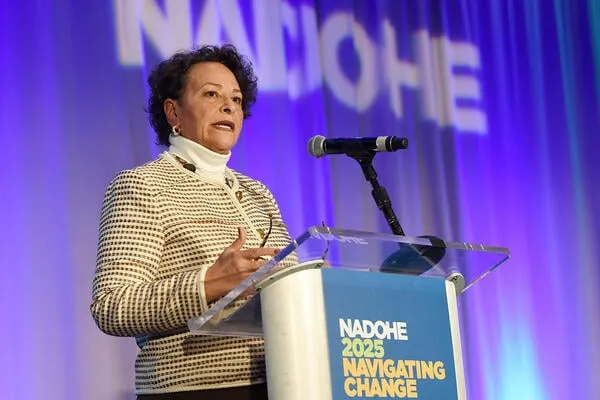Howard University students have taken to social media to crowdsource funds after some found out they owe thousands of dollars to the institution following its transition to a new student financial platform, NBC News reported.
The social media campaigns began after about 1,000 students received notice that the university put their accounts on hold because of unpaid balances. Some students received emails on June 4 saying that if the balances weren’t paid off by the end of the month, their bills would be sent to an external collections agency, according to The Root. Students in “pre-collection” have until the end of August to pay their bills. As long as a hold remains on their account, they can’t register for classes or student housing.
Half of the cases have been resolved, according to a statement from Howard on Friday.
“We are taking active steps to assist students experiencing challenges related to financial aid and account balances,” the statement read. “The University reaffirms its unwavering commitment to student success and to helping ensure that students are financially equipped to begin the academic year.”
Howard officials also promised to offer virtual and in-person office hours, financial counseling, flexible payment plans, and, when possible, emergency support to affected students.
On social media, students said they were blindsided by the news of how much they owed.
“Myself included, many of us that have these balances on our account were not notified prior … which is why we’re struggling to pay them, because we had no idea,” said sophomore Makiah Goodman in one of multiple TikTok videos she made about the issue. She also said she discovered that a scholarship she earned couldn’t be applied to her debt. In another video, she noted that transferring out of Howard is “on the table” if she can’t pay.
Alissa Jones, also a student, told NBC4 she was a few classes short of graduating when she found out she owed more than $57,000, despite only paying $15,000 per year for the last four years because of scholarship money.
“Right now, it says I owe $57,540-something, like, I owe the whole thing,” Jones said. “If you have any type of hold, you cannot register for class, but with these, obsessive amounts of money that they’re saying we owe, it’s almost like, that’s not one semester’s worth of tuition, at all.”
The breakdown in communication seems to have come as Howard transitioned from its old student financial platform, BisonWeb, to a new version, BisonHub. During the process, some student account updates were delayed between January and June of this year, according to Howard’s statement on Friday. (An earlier update from the university said between May and June.)
Howard officials wrote in the statement that students were informed last October and November that their data would be transferred over to the new platform and that could come with “potential impacts.”
Protests and Fundraisers
A group of students has since launched a protest via an Instagram account called @whosehowardisit.
The group came out with a set of demands, including an immediate in-person meeting with the Board of Trustees, more investment in financial aid and scholarships, and the resignations of some Howard administrators. They also called for student representatives to be added to hiring committees for various administrative positions going forward, particularly directors of student-facing departments. The group provided email templates for students, parents and other stakeholders to amplify their discontent.
“For too long, students have raised concerns about communication failures, inaccessible leadership, and a lack of transparency around critical issues,” the group wrote in a “Get Involved Guide” shared on social media. “This movement is bigger than past due balances; it’s about how Howard University’s actions, or lack thereof, mirror the patterns of white supremacy, classism, and exclusion that oppress lower-income Black and brown students.”
In their recent statement, Howard officials acknowledged students’ outspokenness about the issue.
“While we are addressing the challenges related to the timing of the transition of students’ account data, we are also seeing an increase in the number of students who are publicly expressing frustration and concerns over rising financial pressures and the ability to continue their education,” they said, noting that Howard disproportionately serves low-income students.
They added, “Recent federal cuts to research grants, education programs, and fellowships have compounded financial pressures on both students and faculty.”
Students also shared to the @whosehowardisit Instagram account a central hub for the GoFundMe campaigns. Currently, about 70 students’ crowdsourcing campaigns are listed. (The site notes that the campaigns haven’t been “personally verified.”) Run by broadcast journalism student Ssanyu Lukoma, the site also features a GoFundMe submission form and a directory for possible scholarships and other financial resources.
Some of the fundraising efforts have already paid off. Goodman’s GoFundMe campaign, for example, has so far raised more than $4,000 toward her $6,000 goal. Another campaign for Brandon Hawkins, a rising sophomore, hit $13,000, which is approaching his goal of $16,000. He said in a July 23 update that he’s now met his outstanding balance to Howard and any additional funds will go toward his tuition next year.
“I hold a very personal and powerful mission: to be the first Black man in my family to graduate from college and create a new legacy for future generations,” Hawkins wrote on his GoFundMe page. “However, despite my academic achievements and unwavering passion, I face serious financial barriers that are threatening my ability to return to Howard and continue pursuing my degree.”


